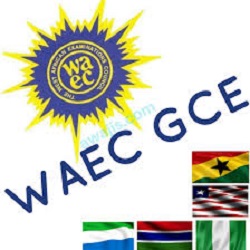Waec gce Government answers 2022
Here is the waec gce government answers 2022
GOVERNMENT OBJ:
1-10: CBBCBDACAC
11-20: CBCCD
21-30: DBABCDDCDD
31-40:
41-50: BBCAAAABCB
(2)
– Law-Making:
The primary function of the legislature is to make laws for the good and well-being of the people as well as for the order and security of the state. Such laws are made in accordance with the state’s constitution and in line with the standing laws and procedure that the assembly has stipulated.
– Representative Function: Legislature as a body composed of elected representatives of the people. Individual members of the legislature in a democracy are elected to represent their constituencies. They are thus expected to visit and consult their constituencies regularly to feel their pulse for better representation.
– Deliberative Function:
Essentially, the legislature is an arena for keen deliberations; and for this reason, it has been correctly described as a deliberative body. It deliberates on a wide range of issues bordering on welfare, economy, and security, among others.
– Confirmation of Nominations made by the Executive:
Under the constitution, the executive can only make nominations to major government positions as ministers, judges and ambassadors. Until these nominees are screened and confirmed by the legislature they remain only designates into positions. They can be deemed to have been validly appointed only after the approval of the legislature.
– Oversight Functions:
It is also the responsibility of the legislature (usually through a standing committee) to conduct investigations into the activities of government ministries, departments and agencies to overseeing, monitor and if need be, scrutinize the accounts and documents of government agencies in relation to the enabling legislation.
(8)
– Presence of regionalised parties:
One of the reasons the military advanced for their intervention in the politics of Nigeria in 1966 was that the various political parties that were operating at the time were not national in nature. The entire support base of the various political parties was regionalised.
– Mismanagement of the economy:
Another accusation that was leveled against the civilian government to warrant their overthrow was that they mismanaged the economy. The economy was said to have been so mismanaged that if the military had not stepped in, the economy would have slid into an abyss.
– Unhealthy rivalry among the major tribes:
The politicians of the day were accused by the military of engaging in tribal politics. The political practice of the time was based on ethnicity so that each of the major political parties was jostling for supremacy. This, according to the military, badly damaged national unity.
– Politicization of the army:
Another cause of the military intervention in Nigeria was the politicization of the army. The army was so politicized that one’s promotion was no longer based on one’s experience, qualification and training but rather on one’s political leanings which was in turn underpinned on one’s tribal origin.
– Tribalism and nepotism:
Another key contribution to the military overthrow of the civilian government of the day was tribalism and nepotism. Recruitment, appointment and promotion within the Nigerian Civil Service was based on “whom you know”. One was not too sure of appointment into the Civil Service if one did not know any “Oga” within the service or did not belong to a certain tribe. This, the military said was bad.
